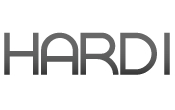Market Segment

December 3, 2018
Manufacturers Discuss Exclusion Process at HARDI
Written by John Packard
On Sunday, the HARDI galvanized steel council met to discuss what has been happening in the industry that is impacting their relationship with their steel suppliers. John Packard, President & CEO of Steel Market Update, along with Josh Spoores, Senior Analyst for CRU, discussed the status of steel prices and the forecast for 2019.
The council also hosted a panel with three manufacturers who make HVAC products being sold to the wholesalers. The three companies: GSI/Ductmate, Lukjan and Southwark discussed a variety of subjects, but the most interesting to Steel Market Update were the comments made by the president of Southwark regarding the impact the 25 percent Section 232 tariffs have had on their business.

The Section 232 tariffs did not move much business to domestic sources, who, according to both Lukjan and Southwark, had no interest in producing the ultra-light gauge steel used to manufacture furnace pipe and fittings used by the HVAC industry.
Southwark told the steel group, “When looking at sources of foreign supply, you have to qualify more suppliers. The problem is, who is your friend and who is your foe?” He went on to relate the story of the Turkish steel mills who got hit by an extra 25 percent tariff when President Trump issued a tweet out of the blue. “Turkey didn’t release the bishop and the tariff went from 25 percent to 50 percent. Who is your friend, who is your foe?”
The manufacturers as a group complained of the lack of predictability. The not knowing complicates the decision-making process both for the manufacturers and their customers. The manufacturers discussed the need to educate their customers who had become used to a price increase not going into effect for one or two months after the original increase date. With the 232 tariffs hitting essentially with little warning, the ability to eat higher inventory cost was greatly reduced.
Spiegel also admitted that Southwark had filed for 95 exclusions back in August 2018. All of the material was .015-inch and lighter. The domestic steel mills filed objections to Southwark’s exclusion requests. Southwark told the group he has asked the objecting mills if they can produce the products and was told by the mills, “Not interested in providing this [exclusion requested material] at this time.” He went on to tell those in attendance that there have not been any decisions made by the government on any of the products they had requested.
As the program came to an end, the manufacturers admitted that foreign-produced HVAC products were coming into the United States and have been for about 10 years. One option is to forgo buying steel (foreign or domestic) and send the manufacturing overseas.
The manufacturers also questioned the quota system as being the answer. Southwark said, “If the administration were to go with a hard quota system, it would raise concerns about quotas affecting our ability to get enough steel.”
The manufacturers also were concerned about the end game. What will happen when the Section 232 tariffs go away? “If they are removed with no structured plan, you throw chaos into the market.”







